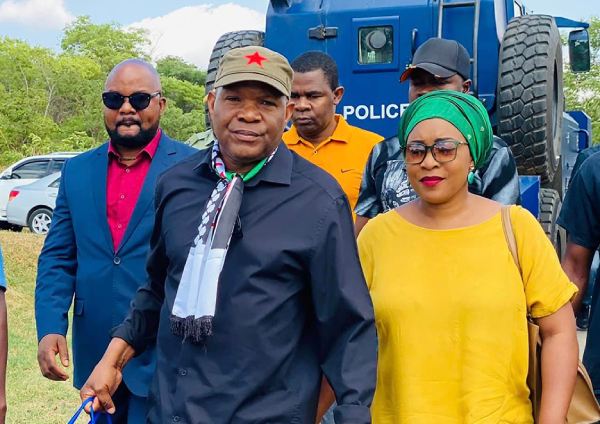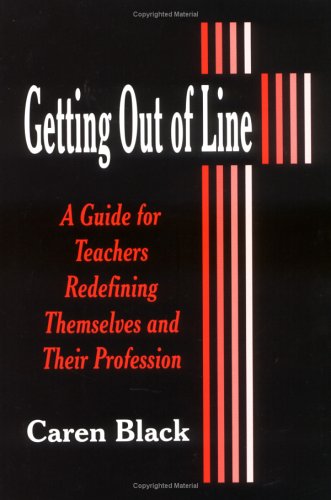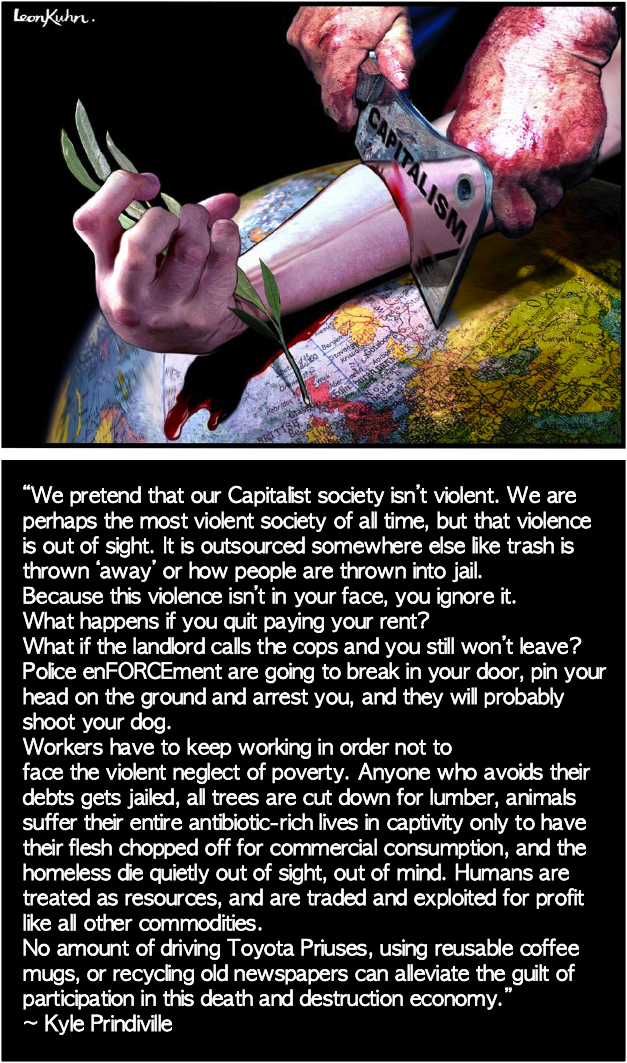On November 15, the president of the Socialist Party (SP) of Zambia, Dr. Fred M’membe, was arrested on charges of espionage. The veteran journalist and political leader had been summoned at the Ibex Police Station for questioning on Wednesday morning.
Speaking to local media, M’membe’s counsel stated that the charge was related to an interview that the SP president had given to a journalist, Musorowegomo Nukosi, in a documentary on the recent elections in Zimbabwe. He added that the complainant in the case was the Zambian state.
Upon arriving at the Ibex police station, M’membe said, “They [the government] should be fighting hunger, not me.”
In a statement, the Zambia Police Service (ZPS) said that M’membe had “without lawful authority communicated or passed on information intended to be directly or indirectly useful to a foreign power, [information that] is prejudicial to the safety or interest of the Republic of Zambia.
The ZPS has also placed in police custody Raphael Nakachinda, a member of the opposition Patriotic Front (PF) on the same charge.
The documentary, titled “The Grand Regional Scheme: How Foreign Powers and Local Elites Are Destroying Africa,” aired on ZBC News in September and examined alleged ties between opposition political figures in Southern Africa and capitalist elite interests. In its own words, the documentary sought to investigate “a secret plan to undermine the stability and sovereignty of several African countries, orchestrated by powerful foreign actors and local elites.”
“Charge me and arrest me as you have been instructed but deep down in your hearts, you know very well that the man you are going to arrest today is an honest patriot who is being persecuted at the hands of a tin-pot dictator and a puppet of imperialism, holding power in this country today,” M’membe declared in a statement following his arrest.
The SP has been an open and critical voice against the neoliberal policies of the government of President Hakainde Hichilema, repeatedly drawing attention to the cost of living crisis in Zambia. Rising costs of the staple food, mealie meal, has pushed families to reduce the number of meals in a country where nearly half of the population was already facing malnutrition. The country is also experiencing high inflation, driven by high food and transport costs, while the kwacha has lost over 20% of its value against the US dollar this year so far.
Amid a severe debt crisis, Zambia has also entered into a loan agreement with the International Monetary Fund (IMF) which would see the implementation of austerity policies including the elimination of subsidies and cuts to public investments coupled with an increase in electricity tariffs and Value-Added Tax, which would affect already vulnerable communities the most.
Following his appearance at the Ibex station on Wednesday morning, M’membe was transferred to the police station in Westwood, located around 35 kilometers from the capital of Lusaka.
SP Deputy General-Secretary Cosmas Musumali stated that the party was waiting for M’membe to be released on bond, adding that the circumstances remained unpredictable and arbitrary.
“We know that the government is desperate, it is a government that is failing to deliver to the masses and the arrests of opposition political leaders is one way of them trying to buy time. We are strong, we are resilient and we know what the government wants to do…and it wont work.”
The interview upon which the espionage charge is based was featured in a documentary on Zimbabwe’s election, notably also looking at an “alliance” that had been formed between Hichilema and other opposition parties in Africa, “stemming from what they collectively called as a struggle for democracy.”
Hichilema’s victory in the 2021 elections marked, for them, the documentary says, “the beginning of what got to be regarded as a regional paradigm shift, a campaign where they aspired subsequently to unseat all revolutionary movements in the SADC region primarily with the aim of fostering neoliberal rule. If it could happen in Zambia, it could easily be achieved in Zimbabwe, in South Africa, Tanzania and even Angola…”
Incumbent president Emmerson Mnangagwa from the ruling Zimbabwe African National Union-Patriotic Front (ZANU-PF) won the August general elections, defeating opposition candidate Nelson Chamisa of the Citizens Coalition for Change, and a member of the alleged “alliance” as described in the documentary.
The documentary raised questions regarding the “alliance” including the mobilization of funds from “western sympathizers,” particularly examining the role of the Brenthurst Foundation, which was founded by the Oppenheimer family, the owners of the Anglo-American mining company.
It also raised questions regarding the SADC election observation mission that had been deployed to Zimbabwe. The delegation was led by Zambian politician Nevers Mumba, who had been appointed by President Hichilema, amid concerns regarding his objectivity.
In his statement to the police, which he later shared on his Facebook page, M’membe condemned the espionage charge as a “product of class ignorance and a reactionary mind of a puppet regime.” Declaring himself as a revolutionary, patriot, pan-Africanist and internationalist, he recalled his solidarity with the anti-colonial forces in Zimbabwe who had fought for liberation, as well as his membership of the Communist Party of South Africa (now the SACP), during the anti-apartheid struggle in South Africa.
“Zambians are not enemies of Zimbabweans. We are one people with one destiny under the common struggle to liberate ourselves from imperialist and neo-colonialist subjugation, exploitation and humiliation,” he affirmed.
“This is not the first time, and it won’t be the last time, the truth is that it has nothing do with espionage, it has to do with silencing critical voices of the masses, there is hunger, there is discontent amongst the masses in Zambia…The people who are standing up and speaking on behalf of the masses are the ones being arrested and Fred M’membe is a voice of the voiceless, of the hungry masses of Zambia— that is the real issue.”, Musumali said of M’membe’s arrest.
He warned that this intimidation would produce a “boomerang” effect, as the Zambian masses learned more and more of the government’s inability to provide solutions to everyday problems. “Those [jail] cells are not meant to hold people and to gag their mouths. It is wrong and Zambians should stand up and say what is wrong is wrong and enough is enough, and we are not going anywhere with this government”.
The proceedings on Wednesday were the latest in a series of charges imposed on the SP president, including his arrest on charges of libel and “acts intended to cause grievous bodily harm” in August. M’membe and other members of the SP had also been arrested in April following political violence in the Serenje district in which SP cadres were attacked by members of the ruling United Party for National Development (UPND).
“Arrest the high prices of mealie meal, not me. Arrest the high cost of living, not me. Arrest the high prices of fuel, not me. Arrest the depreciation of the kwacha of its value against the US dollar this year], not me. Arrest the destruction of the Zambia Police…Arrest and detain me for as long as you want, take me to Bweengwa or any other place you want, for my detention but I can assure you, I will be back. You cannot intimidate me”, M’membe said in his statement.
Writing from a cell at the Westwood Police Station, he said, “There is no question about Mr Hichilema and his corrupt puppet regime’s resolve to destroy this country and turn us into a banana republic… They want to kill our democracy and our cherished freedoms, rights and rule of law. These rogues are behaving like they didn’t come to power through democratic processes.”
“But they will not succeed. They will pay dearly for this,” M’membe affirmed. “They will be taught a harsh lesson about people-power and what an oppressed and suppressed citizenry can do to safeguard its interests and protect their country.”
AMERICA BACK OFF!
— African Stream (@african_stream) March 31, 2023
America has no moral authority when it comes to lecturing Africa about democracy. That’s the stinging assessment of Zambia’s opposition leader, Fred Mnembe.
He delivered it during the visit of US Vice President Kamala Harris. And pointed to her country’s… pic.twitter.com/dp8No1jMDL









